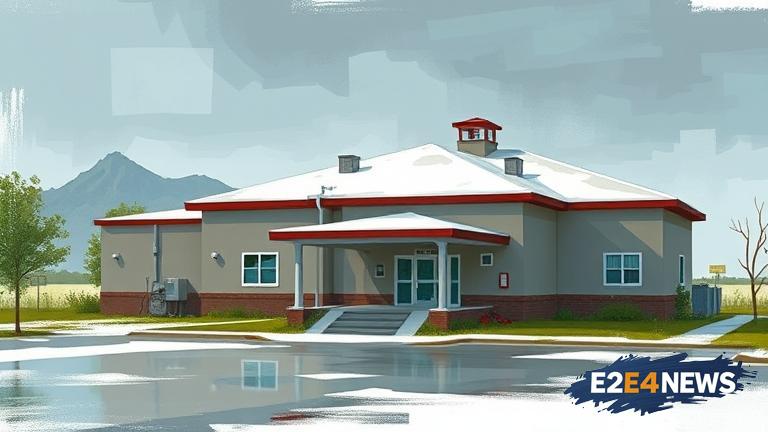Rural hospitals are facing a funding crisis, which is having a significant impact on the ability of these facilities to provide quality healthcare to their patients. The funding challenges are due to a combination of factors, including declining reimbursement rates, reduced patient volumes, and increased regulatory burdens. Many rural hospitals rely heavily on Medicare and Medicaid reimbursement, but these programs have been subject to significant cuts in recent years. As a result, rural hospitals are struggling to maintain their financial stability, and some have even been forced to close their doors. The closure of rural hospitals has a devastating impact on the communities they serve, leaving residents without access to emergency care, surgical services, and other essential healthcare services. Rural hospitals are often the largest employer in their community, and their closure can have a significant economic impact. The funding crisis is not limited to rural hospitals, but it is particularly acute in these facilities due to their limited resources and patient volumes. Rural hospitals often have limited access to specialized care, and patients may have to travel long distances to receive the care they need. The lack of funding is also making it difficult for rural hospitals to recruit and retain qualified healthcare professionals, which can further exacerbate the healthcare disparities in these areas. The federal government has implemented various programs to support rural hospitals, including the Rural Hospital Flexibility Program and the Medicare Rural Hospital Flexibility Program. However, these programs are not sufficient to address the scale of the funding crisis, and more needs to be done to support these critical healthcare facilities. Rural hospitals are not just healthcare providers, but they are also a vital part of their community’s social and economic fabric. They provide jobs, stimulate local economic growth, and are often the only source of healthcare for miles around. The closure of rural hospitals can have a ripple effect throughout the community, leading to a decline in population, a decrease in economic activity, and a reduction in the overall quality of life. To address the funding crisis, policymakers must take a comprehensive approach that includes increasing reimbursement rates, reducing regulatory burdens, and providing additional funding for rural hospitals. This can include programs such as the Rural Emergency Medical Services (EMS) Program, which provides funding for emergency medical services in rural areas. Additionally, policymakers can support rural hospitals by promoting telemedicine and other innovative healthcare delivery models that can help to increase access to care in these areas. The use of telemedicine can help to reduce the need for patients to travel long distances to receive care, and it can also help to increase the efficiency of healthcare services. Furthermore, policymakers can support rural hospitals by providing funding for workforce development programs, which can help to recruit and retain qualified healthcare professionals in these areas. The funding crisis facing rural hospitals is a complex issue that requires a multifaceted solution. It will require the cooperation of policymakers, healthcare providers, and community leaders to ensure that rural hospitals have the resources they need to provide quality healthcare to their patients. In conclusion, the funding crisis facing rural hospitals is a significant concern that requires immediate attention. It is essential that policymakers take a comprehensive approach to address this issue, including increasing reimbursement rates, reducing regulatory burdens, and providing additional funding for rural hospitals. By working together, we can ensure that rural hospitals have the resources they need to provide quality healthcare to their patients and to continue to serve as a vital part of their community’s social and economic fabric. The future of rural healthcare depends on it. Rural hospitals are the backbone of the healthcare system in rural areas, and their closure can have a devastating impact on the communities they serve. It is essential that we take action to address the funding crisis facing these critical healthcare facilities. The time to act is now, and we must work together to ensure that rural hospitals have the resources they need to thrive. The consequences of inaction will be severe, and it is our responsibility to ensure that rural hospitals can continue to provide quality healthcare to their patients. We owe it to the communities they serve, and we owe it to the healthcare professionals who work tirelessly to provide care in these areas. The funding crisis facing rural hospitals is a challenge that we can overcome, but it will require a concerted effort from policymakers, healthcare providers, and community leaders. We must work together to address this issue, and we must do it now. The future of rural healthcare is at stake, and we cannot afford to wait any longer to take action.





